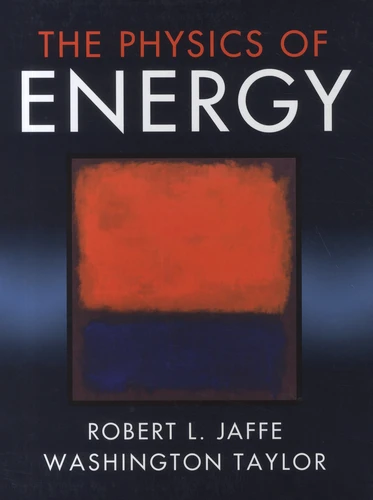The Physics of Energy
Par : ,Formats :
- Paiement en ligne :
- Livraison à domicile ou en point Mondial Relay indisponible
- Retrait Click and Collect en magasin gratuit
- Réservation en ligne avec paiement en magasin :
- Indisponible pour réserver et payer en magasin
- Nombre de pages874
- PrésentationRelié
- FormatGrand Format
- Poids2.58 kg
- Dimensions22,0 cm × 28,5 cm × 4,5 cm
- ISBN978-1-107-01665-1
- EAN9781107016651
- Date de parution25/01/2018
- ÉditeurCambridge University Press
Résumé
What energy sources can be used to power human activity in future years ? How can these sources be harnessed and what are their advantages and disadvantages ? At a more fundamental level, whet exactly is energy ? And why are some forms of energy so much more useful than others ? The Physics of Energy addresses these questions and more in a comprehensive, unified, and systematic Introduction to the scientific principles that govern energy sources, uses, and systems.
This definitive textbook will enable the reader to : Understand the fundamental physical principles underlying the full range of energy sources, including nuclear, solar, wind, geothermal, and water power, as well as bio and fossil fuels. Explore the flow of energy through Earth's interior, oceans, and atmosphere to human end uses, and related issues such as energy storage, electric grids, climate impact, efficiency, and conservation.
Estimate effectively the resources available and efficiency of extraction and conversion in a wide range of energy contexts. Analyze energy systems using quantitative methods that draw from a broad range of physical theories and practical science and engineering tools. This book will been essential resource for any student, scientist, engineer, energy industry professional, or concerned citizen who has some mathematical and scientific background and an interest in understanding energy systems and issues quantitatively.
Its comprehensive but modular form makes it en ideal text for a broad range of courses on energy Science.
This definitive textbook will enable the reader to : Understand the fundamental physical principles underlying the full range of energy sources, including nuclear, solar, wind, geothermal, and water power, as well as bio and fossil fuels. Explore the flow of energy through Earth's interior, oceans, and atmosphere to human end uses, and related issues such as energy storage, electric grids, climate impact, efficiency, and conservation.
Estimate effectively the resources available and efficiency of extraction and conversion in a wide range of energy contexts. Analyze energy systems using quantitative methods that draw from a broad range of physical theories and practical science and engineering tools. This book will been essential resource for any student, scientist, engineer, energy industry professional, or concerned citizen who has some mathematical and scientific background and an interest in understanding energy systems and issues quantitatively.
Its comprehensive but modular form makes it en ideal text for a broad range of courses on energy Science.
What energy sources can be used to power human activity in future years ? How can these sources be harnessed and what are their advantages and disadvantages ? At a more fundamental level, whet exactly is energy ? And why are some forms of energy so much more useful than others ? The Physics of Energy addresses these questions and more in a comprehensive, unified, and systematic Introduction to the scientific principles that govern energy sources, uses, and systems.
This definitive textbook will enable the reader to : Understand the fundamental physical principles underlying the full range of energy sources, including nuclear, solar, wind, geothermal, and water power, as well as bio and fossil fuels. Explore the flow of energy through Earth's interior, oceans, and atmosphere to human end uses, and related issues such as energy storage, electric grids, climate impact, efficiency, and conservation.
Estimate effectively the resources available and efficiency of extraction and conversion in a wide range of energy contexts. Analyze energy systems using quantitative methods that draw from a broad range of physical theories and practical science and engineering tools. This book will been essential resource for any student, scientist, engineer, energy industry professional, or concerned citizen who has some mathematical and scientific background and an interest in understanding energy systems and issues quantitatively.
Its comprehensive but modular form makes it en ideal text for a broad range of courses on energy Science.
This definitive textbook will enable the reader to : Understand the fundamental physical principles underlying the full range of energy sources, including nuclear, solar, wind, geothermal, and water power, as well as bio and fossil fuels. Explore the flow of energy through Earth's interior, oceans, and atmosphere to human end uses, and related issues such as energy storage, electric grids, climate impact, efficiency, and conservation.
Estimate effectively the resources available and efficiency of extraction and conversion in a wide range of energy contexts. Analyze energy systems using quantitative methods that draw from a broad range of physical theories and practical science and engineering tools. This book will been essential resource for any student, scientist, engineer, energy industry professional, or concerned citizen who has some mathematical and scientific background and an interest in understanding energy systems and issues quantitatively.
Its comprehensive but modular form makes it en ideal text for a broad range of courses on energy Science.


